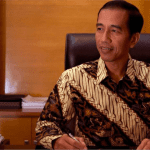The ASEAN Enhanced Disputes Settlement Mechanism (EDSM): Functional for Economic Growth or Protecting National Sovereignty?
Suraj Shah
As the ASEAN Economic Community (AEC) seeks to deepen regional economic integration, the Enhanced Dispute Settlement Mechanism must avoid politicisation to optimise successful integration and economic development in the region.
Dispute Settlement Mechanisms (DSM) are fundamental features of economic institutions to ensure optimal outcomes. Governments include DSMs in international institutions to address collaboration problems and enhance the credibility of commitments, through exposing free riding, ascertaining violations and penalizing non-compliance. Economic actors need dispute settlement to be effective, even if not necessarily used, so that they know economic bargains will be honored.
However, in ASEAN, the EDSM suffers from fatal flaws. Fundamentally, a functional DSM that disciplines members who renegade on agreements is incompatible with the ‘ASEAN Way’, particularly given the norms of non-criticism and non-interference. Thus, the institutional outcome of the EDSM is structurally weak in that its instruments reflect the preference for protecting national sovereignty, and is essentially voluntary.
To establish credibility, one can either centralise regulations and institutions, such as the European Union, with a credible threat of referral to the European Court of Justice, or create a legal certainty about the extent of liberalisation with precision from the outset, such as NAFTA, together with the public and private instruments to defends one’s economic rights.
The ASEAN DSM has been active since the 1992 AFTA. Moreover, since the launch of the AEC, ASEAN has sought to enhance the DSM. The Protocol to the ASEAN Charter on Dispute Settlement Mechanisms was signed in April 2010, providing greater definition to the original DSM, known as the Enhanced Dispute Settlement Mechanism (EDSM).
The ASEAN’s EDSM is modeled on the WTO Dispute Settlement Understanding (DSU), of which all ASEAN members already subscribe to. This includes panels of independents, an appellate body, strict timelines and options for sanctions. However, ASEAN’s EDSM model suffers from practical flaws. The timelines adopted are even more expedited than the WTO DSU, by adopting half the time, which the WTO itself has difficulty following.
Furthermore, the ASEAN Secretariat is tasked to support the EDSM process with administrative and logistical support, yet has inadequate funding and legal expertise allocated to the EDSM process. Additionally, state-induced dispute settlement does not specify the remedy for found violations.
Thus, the EDSM establishes a dispute resolution procedure that cannot practically be followed. This structural weakness means that the EDSM has never been invoked.
Indeed, members favour using the WTO DSU rather than EDSM to resolve disputes, to avoid violating the norms of the ‘ASEAN Way’. For example, in Thailand’s dispute with the Philippines on Customs and Fiscal Measures on Cigarettes in July 2016, the WTO DSU was used, as it was seen as strategically less confrontational and would save face among ASEAN members by allowing third parties outside of the region to participate. Additionally, the WTO DSU was seen to give a more favorable outcome, given that the ASEAN EDSM is untested.
Moreover, effective dispute settlement mechanisms must be independent, yet, EDSM suffers from politicisation. The EDSM recognizes a variety of dispute settlement methods, ranging from ‘dialogue, consultation, and negotiation’, reference of ‘unresolved’ disputes to the ASEAN Summit, to the highest political decision-making body. However, it is possible under the current language of the ASEAN Charter, for an ASEAN member to refuse cooperation with the EDSM in the panel process or compliance proceedings, and thereby create an ‘unresolved dispute’.
The EDSM stipulates that ‘unresolved disputes’ have to be adopted by ASEAN political organs such as the ASEAN Economic Ministers Meeting (AEM), where both parties are already represented. In this sense, dispute settlement becomes politicised rather than independent. Moreover, in light of ASEAN norms of the aversion of conflict, adjudication with political, rather than independent, approval means the EDSM will likely be avoided.
Furthermore, the EDSM only envisages participation by ASEAN member states and does not permit private entities or investors to participate in the adjudicatory process. This minimises the involvement of non-state actors by denying access, disallows domestic courts from seeking a preliminary ruling, and deprives adjudicators of the means to compel compliance.
Essentially, the norms of the ‘ASEAN Way’ result in the structural weakness of the ASEAN EDSM. The outcome is a state-controlled EDSM which is voluntary, as there is an opt-out from the institutions of dispute settlement which is functional for protecting national sovereignty. While this non-confrontational approach may be suitable for diplomacy, ASEAN EDSM decisions behind closed doors by bureaucrats or politicians are not suitable for market transactions where private decisions implying private money or private efforts are based on public obligations or rights.
In light of this, the ASEAN EDSM is unlikely to be functional for optimising ASEAN Economic Integration, nor economic development in the region more broadly. ASEAN must seek to depoliticize the Enhanced Disputes Settlement Mechanism and create an independent regulatory body, as it seeks to deepen regional economic integration through the ASEAN Economic Community.
Suraj Shah is a MSc from King’s College London and former visiting fellow of ASEAN Studies Center.





